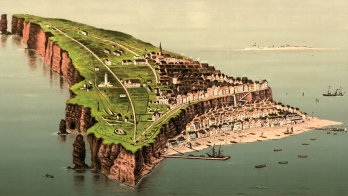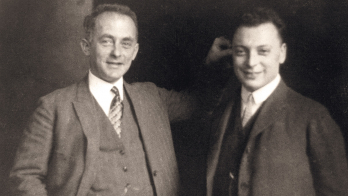Photos record the preparations for the collider and detectors.

March: Precision is the name of the game as, once in position in the tunnel, the LHC’s magnets are carefully aligned.

March: The Train Inspection Monorail, affectionately referred to as “TIM,” will allow teams to view the LHC tunnel and take measurements remotely when it is inaccessible to humans.

The last of 1746 superconducting magnets is lowered into the LHC tunnel via a specially constructed pit at 12.00 on 26 April. This 15 m long dipole magnet is one of 1232 dipoles that will guide the two proton beams in opposite directions around the 27 km circumference.

Gently does it: In January, the lorry transporting the time projection chamber for the ALICE experiment took an hour to travel the 200 m from the assembly hall to the access shaft for the underground cavern.

The first half of the CMS barrel hadron calorimeter cylinder was lowered into the underground cavern in February. It weighs almost 600 tonnes.

In July the CMS forward pixel detector, which was built at Fermilab, underwent an installation test. The photo shows the central opening of the silicon strip tracker where the beam pipe and pixel detector will be located.

January: The CMS tracker outer barrel is inside the tracker support tube, fully cabled. The golden rectangles are digital optohybrid modules for distributing clock and trigger signals.

ALICE’s inner tracking system (ITS) was installed into the heart of the experiment in March. It was a delicate task to fit the ITS within the time projection chamber.

The 42nd and final module for LHCb’s vertex locator arrived from Liverpool in March, marking the culmination of 10 years of development. The detector will be placed just 5 mm from the beam line.

The outer layers of ALICE’s ITS, seen prior to installation in March, contain almost 5 m2 of double-sided silicon strip detectors.

The first inner detector endcap for the ATLAS experiment is fully inserted into the liquid-argon cryostat in May.

March: End view of the heat shield and cryostat of one of the ATLAS endcap toroids while still in the assembly hall before the mounting of detectors.

Lowering the second ATLAS endcap toroid magnet into the cavern in July.








